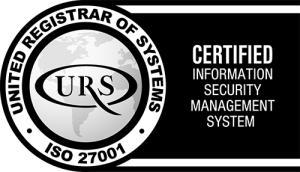DMD therapeutic pipeline overview
The aim of this overview (updated December 2024) is to inform patients and parents about the different therapeutic approaches for Duchenne muscular dystrophy currently under investigation in clinical trials or approved, to describe the advantages and disadvantages of each approach and to list the hurdles that have to be overcome before these approaches can be applied to patients.
Note: The scientific field of Duchenne therapies is huge and rapidly evolving, making it impossible to include each and every approach in a brief overview. Thus, a general overview of the main approaches is provided.
Funding from Duchenne Parent Project (the Netherlands), Parent Project Muscular Dystrophy (USA), Action Duchenne, Duchenne UK and Duchenne Parent Project Onlus (Italy) for travel costs to allow Annemieke Aartsma-Rus to attend annual international meetings in the UK, US and Italy to allow her to update the overview is gratefully acknowledged.
The problem
Duchenne muscular dystrophy is caused by mutations (genetic mistakes) that disrupt the genetic code of the dystrophin gene. This gene is normally translated by muscle cells into the dystrophin protein, which links the skeleton of the muscle fibers to the protective layer on the outside of fibers. This link stabilizes muscle fibers during muscle contraction (exercise). I like to explain the function of dystrophin by the analogy of an anchor (the skeleton of the muscle) and a boat (the protective layer outside), where dystrophin is the rope that connects the two.

Due to the disruption of the genetic code, the code becomes unreadable and only the beginning of the protein can be produced by the cell and the linker function is lost (The boat is no longer linked to the anchor, Figure 2). As a result, Duchenne muscle fibers are very easily damaged, even during normal exercise.

Mutations in the dystrophin gene that do not disrupt the genetic code allow the generation of a dystrophin that is partially functional (i.e. it can link the anchor to the boat, but it is slightly shorter (Figure 3)). These mutations are associated with the less severe Becker muscular dystrophy.

Developing therapeutic approaches
There are numerous therapeutic approaches in development and the majority follow the same road of preclinical to clinical studies. First the approach is tested in cultured patient cells, then in animal models of the disease (generally the mdx mouse) and then – when the results in cells and animals are sufficiently convincing, in patients (clinical trials). This part of therapeutic development can take a very long time as often unforeseen hurdles arise, which have to be overcome. Clinical trials are divided in two phases: the early phase trials are primarily done to show that the approach is safe, while in later stage trials the goal is to show that the treatment is efficient as well as safe. It is good to bear in mind that while each step is critical, the next step is always more challenging. So if a compound works in an initial step (e.g. cell studies) this is no guarantee for further successes in studies in animals and humans.
Furthermore, deciding when to move from studies in cells and animals to humans, is challenging. This decision making process can be facilitated by the TREAT-NMD advisory committee for therapeutics (TACT).

